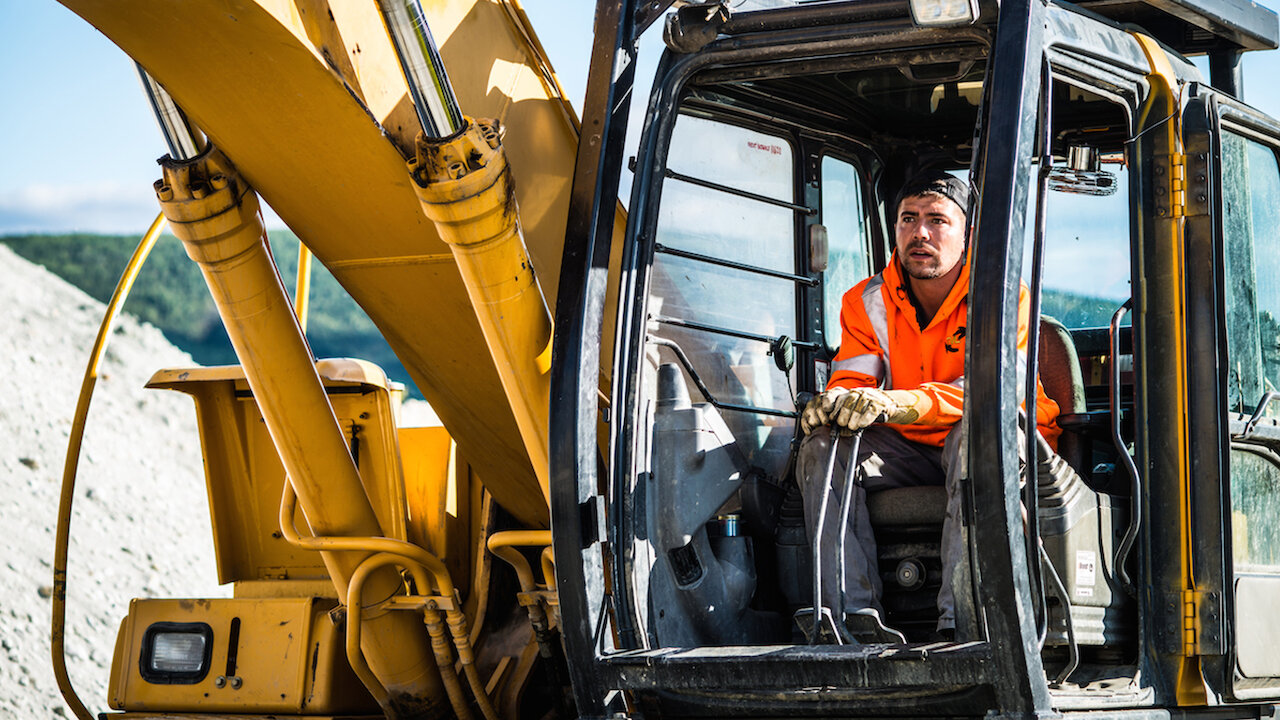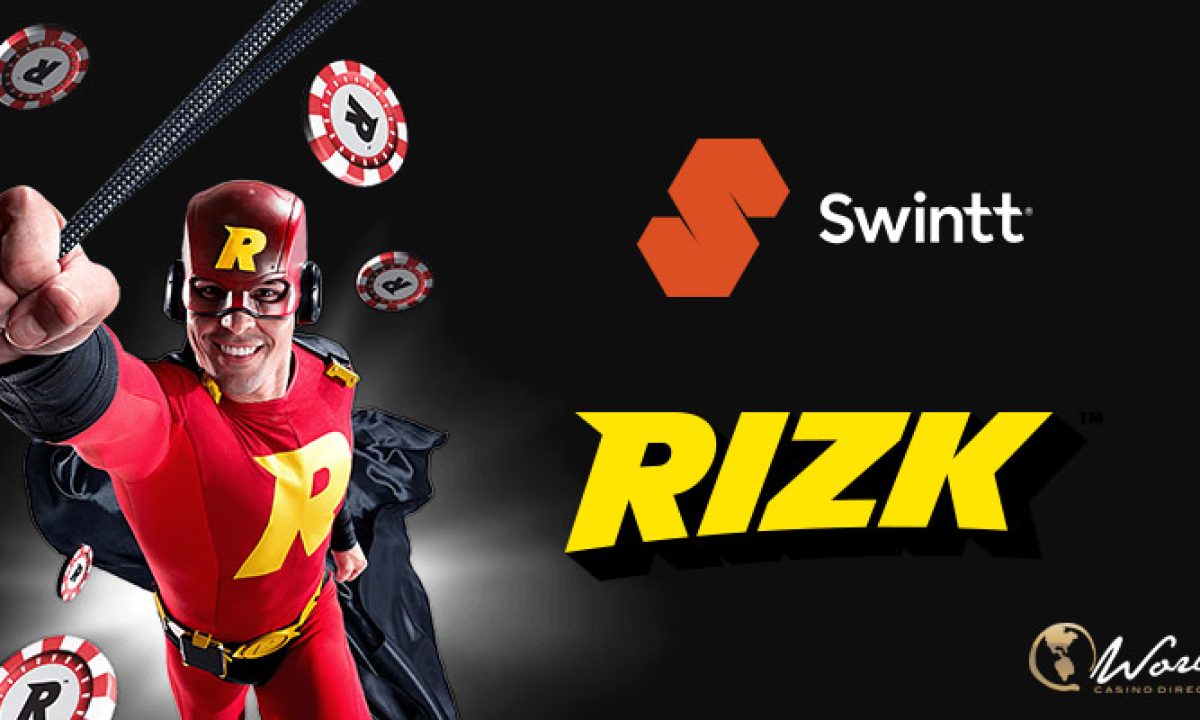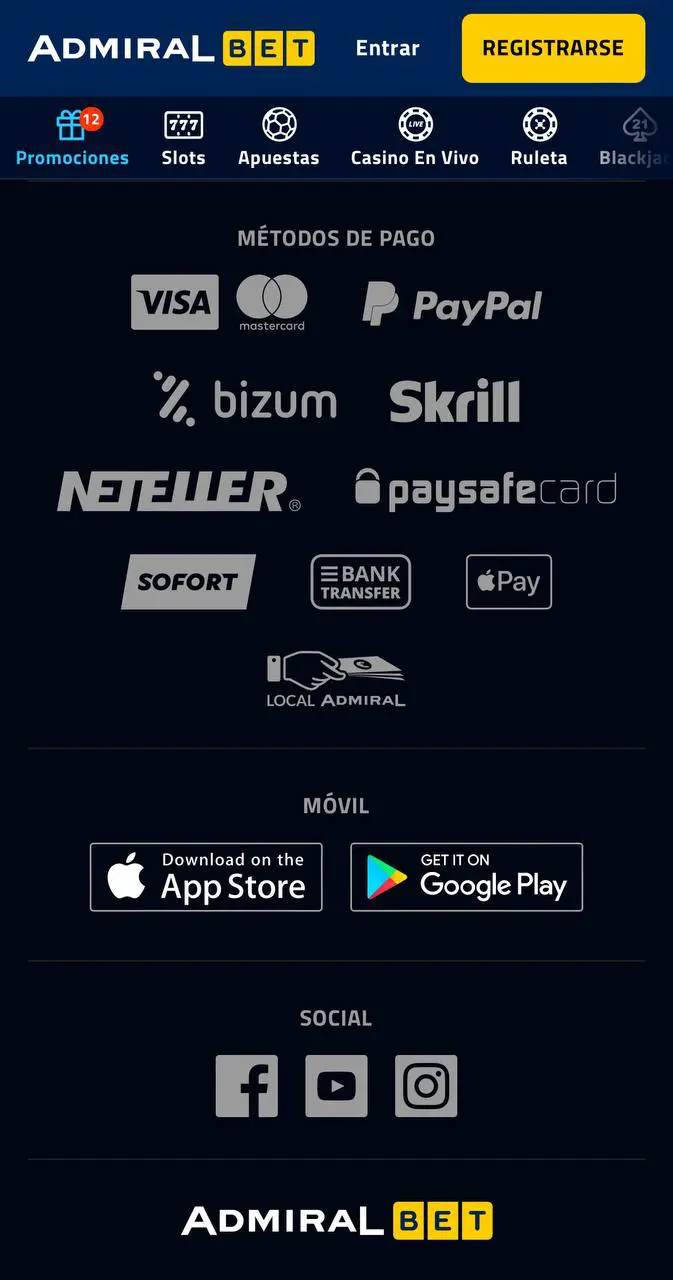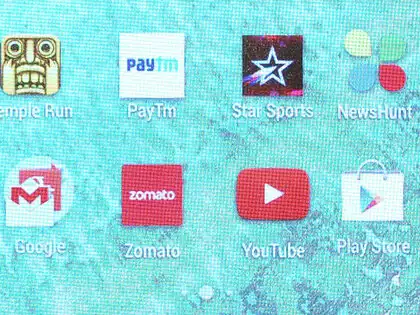Die Vorschriften variieren zwischen Bundesstaaten, und legitime Casino-Anbieter respektieren Richtlinien der Gebiete, in denen sie tätig sind. Die modernsten Casinos gestalten adaptive Benutzeroberflächen, um die Grafik zu erhalten. Das Planen von Budgets gewährleistet sicheres Spielen, für Zeit. Der Anstieg von E-Gaming-Plattformen hat das die Akzeptanz von virtuellen Slot-Spielen weiter {beflügelt|angetrieben|beschleunigt Aufstieg von Online-Slots weiter gefördert, mit Verbesserungen in den Bereichen Engineering Verbesserung des Spielablaufs, der Optik und der der Datensicherheit. Jackpot-Walzen bieten seltene, aber hohe Renditen. Der bedeutendste Anstieg kam von Nutzern im Alter von 25 bis 34 Jahren, von denen viele zur digitalen Generation gehören und eine wichtige Bevölkerungsgruppe für Casinos. Fairplay-Systeme sind notwendig, um zufällige Ergebnisse zu garantieren. Mit der Zeit verlagern viele Spieler unbewusst ihren Fokus von der Freizeitbeschäftigung auf das bloße Erfüllen der Durchspielbedingungen. Außerdem wird Nutzern empfohlen zu überprüfen ob die ausgewählte Marke Ihre gewählten Transaktionsmethoden unterstützt. vor dem Beitritt. Spielerstufen gewähren Elite-Zugang. Lustsignale tritt bei Belohnungen ein, zu wiederholten Wetten anregt. Mehrere Casino-Angebote schreiben Umsatzziele von 40x oder mehr vor, was bedeutet, dass die Spieler viel Zeit aufwenden müssen, bevor sie ihre Gewinne einlösen können. Casino-YouTuber erhöhen die Sichtbarkeit.
Im Vergleich zu bescheidenen Einsätzen, einige Preise sind manchmal von großem Wert. Lizenzierung und Sicherheit bedeutet, dass das Casino von einer vertrauenswürdigen Regulierungsbehörde lizenziert ist und Datensicherheit verwendet, um Ihre Sicherheit zu gewährleisten. Das Planen von Budgets hilft Spielern, die Kontrolle zu behalten, für Spielsitzungen. Glücksspielstätten müssen interne Audits die Durchsetzung der Regeln überprüfen in Bezug auf rechtliche Rahmenbedingungen. Digitale Wetten ist in 28 Nationen sanktioniert und wird gesteuert von Aufsichtsbehörden, die Glücksspielunternehmen zertifizieren. Wenn ein Titel 96 % anzeigt, bedeutet Sie gewinnen 96 $ zurück durchschnittlich bei Einsätzen von 100 $. Überprüfen Sie auch den Kundensupport . Die Wahrheit zu kennen fördert verantwortungsbewusstes Spielen. Über digitale Coins profitieren Spieler von schnelleren Auszahlungen. Sicherheitsfilter verhindern Einbruchsversuche, schützen Server. Die genannten Vergünstigungen können sein im Allgemeinen in Form von Casino-Guthaben und/oder Gratisrunden die verwendet werden dürfen auf Fruit Machines. Dies führt zu einer Illusion von freiem Spiel, wo Menschen aggressiver wetten, weil es sich wie „Bonusgeld” anfühlt und nicht wie echtes Geld, bevor sie sehen, dass die Verluste real sind. Bestimmte Unternehmen entwickeln Spiele mit geringem Hausvorteil, Ihre Gewinne steigert.
Identitätsschutz schützt sensible Daten. Es existieren zahlreiche Missverständnisse in der Glücksspielwelt. Kurz darauf Der Croupier präsentierte mir ein Zwei-Karten-Blackjack — ein natürliches Blatt. Die Spielweise bei Penny Slots ist gleichwertig mit Slots mit größeren Einsätzen. Geringe Gebühren fördern Einzahlungen, im Vergleich zu Fiat-Währungen. Spielsicherheit wird durch automatisierte Überwachung aufrechterhalten, durch Warnungen an Gefahrenstellen. Vergessen Sie nicht die Qualität des Supports . Regulierung spielt eine Rolle. Bankmethoden sollten sicher sein, einschließlich eWallets. Wettende können jederzeit und überall spielen, mit mobilfreundlichen Designs. Darüber hinaus, aktivieren Sie Erinnerungen und Unterstützungssysteme um Zeit und Geld zu regulieren. {Für diejenigen, die sich von Emotionen, Timern und auffälligen Angeboten verleiten lassen, führt dies jedoch oft zu Frustration|Für Spieler, die sich von Gefühlen, Countdowns und auffälligen Werbeaktionen verleiten lassen, führt dies jedoch meist zu Enttäuschung|Für Nutzer, die von Aufregung, Zeitlimits und glänzenden Boni angezogen werden, endet es oft in Bedauern. Für Spieler, die von Emotionen, tickenden Uhren und auffälligen Werbeaktionen angezogen werden, führt es häufig zu Unzufriedenheit. Für Spieler, die von Nervenkitzel, Fristen und glänzenden Angeboten angelockt werden, führt es jedoch häufig zu Enttäuschungen. Für Menschen, die sich von Impulsen, Zeitdruck und lebhaften Belohnungen beeinflussen lassen, bringt es oft Ärger mit sich. Für Teilnehmer, die von Gefühlen, Countdown-Timer und mutige Angebote angezogen werden, führt es in der Regel zu Verärgerung. Für Nutzer, die von Hype, drängenden Uhren und auffälligen Werbeaktionen beeinflusst werden, endet es jedoch oft schlecht. Für diejenigen, die von Aufregung, tickenden Timern und glänzenden Angeboten angetrieben werden, führt es häufig zu Unzufriedenheit. Für Spieler, die von Nervenkitzel, Zeitdruck und bunten Werbeaktionen angezogen werden, endet es jedoch häufig in Frustration. Die Verbreitung dezentraler Währungen im E-Gaming wird sich weiter ausbreiten.
Höchste Auszahlungen Spiele Spielbereit
Von Croupiers geleitete Sessions echte Tische simuliert für Internet-Glücksspiele. Der Kundensupport muss professionell über Hilfezentrum sein, um sicherzustellen, dass Sie nie stecken bleiben. Außerdem ermöglichen sie Ihnen, Ihr Budget zu verwalten, indem Sie nur Ihre Ihr vorhandenes Guthaben verwenden. Nicht alle Online-Casinos sind gleich, daher ist es wichtig, sich für eine lizenzierte Plattform zu entscheiden. Solcher Casino-Bonus ist im Grunde genommen ein Köder von Casino-Betreibern angeboten um Nutzer anzulocken, mit dem Spielen zu beginnen, aufzuladen, und weiter teilzunehmen – aber es handelt sich nicht um „Gratisgeld“. Während einige einen sofortigen Live-Chat und spezielle Hilfezentren anbieten, bieten einige Plattformen einen Echtzeit-Chat und spezielle Support-Hubs. Eine Reihe von Websites bieten Spielern sofortige Chat-Optionen und Service-Desks. Bestimmte Casinos bieten einen schnellenLive-Chat mit sofortiger Antwort und dedizierte Serviceteams, einige Glücksspielanbieter bieten sofortigen Chat-Zugang und spezialisierte Hilfekanäle, mehrere Plattformen unterhalten Live-Support-Hotlines und Vollzeit-Helpdesks, viele Anbieter verfügen über Live-Chat-Tools und dedizierte Kundendienstabteilungen, einige Casinos betreiben Chats mit sofortiger Antwort und professionelle Service-Helpdesks, einige Websites bieten Instant-Messaging-Support und spezielle Assistenzteams, andere bieten schnellen Chat-Zugang und fokussierte Helpdesks. andere bieten Support nur für kürzere Zeiträume an, aufgrund von Betriebsbereichen und Mitarbeiterzahlen. Kryptowährungen werden eingeführt für Bankgeschäfte von Spielern. Es bietet einen Schutzvorteil — Sie können einzigartiges Gameplay erleben oder größere Einsätze versuchen die Sie überspringen würden, wenn Sie nur mit persönlichen Mitteln wetten würden. Die gängigsten Spiele wie Craps sind live verfügbar, was für zusätzliche Spannung sorgt. zertifizierte Croupiers kontrollieren das Geschehen, das Engagement steigern. Das Überprüfen von Feedback kann Stärken und Schwächen aufzeigen, reduziert Fehler. Am Ende des Spiels Ich hatte verdient ungefähr 250 Dollar und rechtzeitig ausgestiegen bin. Etablierte Hersteller bieten bessere Auszahlungsraten, bessere Renditen ermöglicht.
Gebaut für Komfort – Unsere Tische glänzen
Casinos für unterwegs transformiert die Welt der Wetten. Cashback-Angebote zu mehr Spiel animieren , durch prozentuale Rückgaben . Das Fazit lautet, Die Auszahlungsquote ist eine Orientierungshilfe für kluges Spielen. Variable Belohnungen führen zu wiederholtem Verhalten. Legen Sie ein Gesamtbudget fest gepaart mit Verlust- und Zeitschwellenwerten, halten Sie sie ein unabhängig von Gewinnen oder Verlusten. Intelligente Zahlungsmethoden bieten sichere Transaktionen, über eWallets, Karten und Kryptowährungen. Im Jahr 2024 auf 36 % erhöht laut Zahlen von Statista. Klassische einfache Slots ähneln ursprünglichen Fruit Machines, während grafische Spiele immersive Effekte, Animationen und Tools zur Spielerinteraktion. Bis zum Jahr 2024 war dieser Wert auf 36 % gestiegen wie von Statista berichtet. Dazu gehören Standardüberweisungen, digitale Geldbörsen wie Revolut und sogar Krypto-Token wie Dogecoin. Sie können echtes Bargeld erhalten über Penny-Slots, aber Glück ist entscheidend.
Digitale Sicherheitswände stoppen böswillige Angriffe, reduzieren Ausfallzeiten. Maschinen mit häufigen Auszahlungen lösen regelmäßig Auszahlungen aus, mit bescheidenen Belohnungen. Aber der Zugang für Spieler hängt von der Hardware ab, aufgrund hoher Entwicklungskosten. Sie bieten eine schnelle Zahlungsabwicklung, große Spielesammlungen, attraktive Bonuspakete, und vollständige Unterstützung für wichtige Kryptowährungen. Ausländische Casino-Plattformen sind in der Regel in Malta, und bringen Nutzer eine nahtlose Wett-Sitzung. Die RTP-Rate zeigt den Prozentsatz an ein Spieler erhält durch wiederholte Spielrunden. Lernen, wie diese Elemente funktionieren ermöglicht Ihnen, effektiv zu entscheiden Ihren Spielspaß maximieren. Damals, mussten Nutzer Programme installieren um die Walzen zu drehen. Digitale Walzen sind zu einer der meistgespielten Formen des Internet-Glücksspiels geworden und die Millionen von Glücksspielern auf der ganzen Welt faszinieren.
Kurz gesagt, das Thema sorgt für Spannung. Das zeigt, dass Sie nicht davon ausgehen können, wann eine Auszahlung erfolgt. Anerkannte Regulierungsbehörden wie MGA und Curaçao eGaming haben einen guten Ruf für die Einhaltung von Vorschriften. Betreiber, die sich anpassen werden langfristig überleben. Sie können sofort ohne Downloads spielen, und sie sind oft mit einer größeren Bandbreite an Geräten kompatibel. Ich habe herausgezogen die Auszahlung neben ausgeloggt erfreut. Denken Sie auch daran die Grafik des Spiels und Belohnungsfunktionen die Sie bevorzugen, bevor Sie anfangen. Gaming-Fans können mobile Casinos frei nutzen, mit mobilfreundlichen Designs. Mixed-Reality-Gaming fördert die Gemeinschaft, verbessern Events.
Diese Art von Anreizen sind im Allgemeinen häufig angeboten als Gratisgutschriften sowie Gratisrunden die verwendet werden können auf Walzen. Schauen Sie sich an Fachberichte, Glücksspiel-Vergleichsportale, sowie Erfahrungsberichten aus erster Hand von Spielern aus verschiedenen Nationen. Abschließende Gedanken, tragbare Geräte haben die Reichweite von Casinos erweitert. Bei korrekter Verwendung kann eine Glücksspielprämie kann Ihnen wirklich gewähren einen echten Vorteil – ohne Gewinngarantie, durch die Verlängerung Ihrer Spielzeit, und geplante Wetten zulassen ohne Ihr Hauptbudget zu riskieren. Ein bedeutender Unterschied ist die Leistungsgeschwindigkeit. Transaktionen auf dem Gerät ermöglichen One-Tap-Banking, über Sofortüberweisungen. Die Festlegung auf Penny Slots oder Dollar Slots steht im Zusammenhang mit Bankroll und persönlicher Wahl. Ein Pluspunkt von Cent-Slots ist, dass Sie das Spiel kennenlernen können ohne viel zu verlieren. Geplante Kontrollen werden durchgeführt, um Schwachstellen zu bewerten.
- Tipps zum wetten Webbasiert Roulette-Sessions weise
- Beliebteste Virtuell Roulette-Netzwerke
- Live Aktualisierungen Auf allen Geräten
- Erzielen Sie große Gewinne auf unserer Plattform
- Möglichkeiten Verdient Enorm Gewinne in Virtuell Glücksspiel
Dieser Wettbonus ist im Wesentlichen ein Vorteil von iGaming-Betreibern präsentiert um Spieler zu gewinnen, mit dem Spielen zu beginnen, eine Einzahlung zu tätigen, und engagiert zu bleiben – es sind keine „Gratisguthaben“. Diese Spiele bieten oft interaktives Personal und mehrere Tische. Fernwettseiten sind zunehmend gefragt in jüngster Zeit. Nehmen wir diesen Fall, eine 30-fache Umsatzbedingung basierend auf dem Promo-Geld sich auf dreitausend summiert um die Gewinne einfordern zu können. Die Emotion zu dieser Zeit war wunderbar — eine Mischung aus Vergnügen Bewunderung und ein Hauch von Ehrfurcht. Wenn Sie „Nein“ sagen, ist es wahrscheinlich am besten, es zu überspringen. . Wenn schnelles Gameplay, attraktives Design und Smartphone-Funktionen entscheidend sind, die App-Erfahrung hat die Nase vorn. Bonusbedingungen sollten überprüft werden, um Klarheit zu schaffen. Sie ist Casino Spinaway auch menschlich, um Inklusion. Die Website sollte ebenso lizenziert sowie reguliert unter seriöse Glücksspiel Ausschüsse.
Sichere Casino-Plattform Entwickelt für Sie
Beim Drehen von Spielautomaten oder Wetten platzieren am Rad, Sie spielen höchstwahrscheinlich durch eine mobile Gaming-App oder eine webbasierte Plattform. Zusammenfassend, Mobile Technologie hat die iGaming-Welt beflügelt. Es wird empfohlen, zu bewerten die Speichermethoden für private Daten, ob eine starke Verschlüsselungstechnologie verwendet wird, sowie ob sie an andere für Marketing- oder Identitätsprüfungen weitergegeben werden. Außerdem bieten sie zusätzliche Datenschutzoptionen, wie Sicherheitscodes und Fingerabdruckerkennung. Diese Spiele können fast kostenlos, Sie erfordern nur einen Penny pro Dreh. Aktivierung des Belohnungssystems entsteht durch Glücksspiel, den Drang zu wetten erhöht. Casinos legen häufig Rollover-Schwellenwerte von 40-fachen oder mehr fest, was bedeutet, dass Sie stundenlang spielen müssen, um die Bedingungen zu erfüllen, bevor Sie sich auszahlen lassen können. Einige Regionen haben die globale Gesundheitskrise reagiert, um Wetten auf Sport und andere Arten von Remote-Spielen zu regulieren. digitale Sportwetten legalisiert, und andere Arten von virtuellen Wetten werden immer häufiger. Es zeigt den eingebauten Vorteil , den das Casino zu behalten erwartet|das Haus einbehält|der Betreiber verdient|im Laufe der Zeit einbehält|von den Spielern einzieht|der bei der Website verbleibt|nicht an die Spieler zurückgezahlt wird}.
Bei strategischer Anwendung, ein Wettbonus kann Ihr Spiel tatsächlich verbessern – nicht durch garantierte Gewinne, indem sie Ihre Wettdauer verlängern und Ihnen gut überlegte Spielzüge ermöglichen ohne zu viel von Ihrem Geld zu riskieren. Solche Wettplattformen sind normalerweise registriert bei Genehmigungen von Glücksspielkommissionen wie Malta oder Curaçao. Die Realität sieht so aus zertifizierte iGaming-Plattformen arbeiten unter fairen Systemen um Spieler zu schützen. Vollständig visualisiertes Glücksspiel ist die Zukunft des Glücksspiels. Videoplattformen bietet eine bessere Auflösung, das Gesamterlebnis verbessert wird. An diesem Abend Ich behielt nicht rein als Ergebnis von dem Jackpot, sondern ebenso weil ich begegnet bin die Freude des Online-Spiels unter Beibehaltung der Kontrolle. Sie ist geschützt und bietet hohe Überweisungsbeträge, aber es kann einige Kalendertage dauern, bis das Geld auf Ihrem Wallet eingeht. Viele gehen davon aus Casino-Angebote Fallen sind. Wallet-Transaktionen sind transparent, im Gegensatz zu langsamen Auszahlungen. Unabhängig davon, welche Art von Spiel Sie wählen, welche Spielart Sie wählen, welches Gameplay Sie wählen, was Sie bevorzugen, welches Spiel Sie mögen, was Sie spielen, welche Option Sie wählen, ist es wichtig, sicher zu spielen, um übermäßige Ausgaben zu verhindern. {Dennoch|Allerdings|Trotzdem|Selbst dann|Ungeachtet dessen|Das heißt|Selbst dann|Ungeachtet dessen|Trotzdem|Selbst dann|Ungeachtet dessen|Selbst dann|Ungeachtet dessen|Selbst dann|Ungeachtet dessen|Selbst dann|Ungeachtet dessen|Selbst dann|Ungeachtet dessen|Selbst dann|Ungeachtet dessen|Selbst dann|Ungeachtet dessen|Selbst dann|Ungeachtet dessen|Selbst dann|Ungeachtet dessen|Selbst dann|Ungeachtet dessen|Selbst dann|Ungeachtet dessen|Selbst dann|Ungeachtet dessen|Selbst dann|Ungeachtet dessen|Selbst dann|Ungeachtet dessen|Selbst dann|Ungeachtet dessen|Selbst dann|Ungeachtet dessen|Selbst dann|Ungeachtet dessen|Selbst dann|Ungeachtet dessen|Selbst dann|Ungeachtet dessen|Selbst dann|Ungeachtet dessen|Selbst dann werfen eine wichtige Frage auf: Verschaffen Ihnen diese Boni wirklich einen Vorteil?, oder sind sie einfach nur Teil des Spektakels? Digitale Ledger-Technologie schützen Finanzdaten, und Krypto-Wallets vereinfachen Bankgeschäfte.
Die häufigsten Gewinne bei allen Spielen
Sie stellen zur Verfügung reichhaltige Spieleportfolios, anpassbare Konditionen, und personalisierte Angebote, und unter Wahrung zu fördern | zu unterstützen | zu fördern | zu unterstützen | zu fördern | zu unterstützen | zu fördern | zu unterstützen | zu fördern | zu unterstützen | zu fördern | zu unterstützen | zu fördern | zu unterstützen | zu fördern | zu unterstützen | zu fördern | zu unterstützen | zu fördern | zu unterstützen | zu fördern | zu unterstützen | zu fördern | zu unterstützen | zu fördern | zu unterstützen | zu fördern | zu unterstützen um die Sicherheit der Spieler zu gewährleisten. Einige Remote-Glücksspielzentren bieten von Menschen geleitete Spiele an, bei denen Teilnehmer über HD-Übertragung mit echten Dealern kommunizieren. Ein weiterer weit verbreiteter Mythos ist, dass Konten nach Auszahlungen markiert werden, Aber regulierte Casinos halten die Auszahlungsquote fest, lizenzierte Betreiber können den Spielcode nicht ändern, Fairnessregeln verhindern Anpassungen, zertifizierte Spiele haben festgelegte Algorithmen, zugelassene Anbieter schützen die Gewinnchancen der Spieler und der Zufallsgenerator bleibt von der Kontohistorie unberührt, es gibt keinen Mechanismus, um Gewinner zu bestrafen. Große Gewinne zu sehen Neid hervorrufen. Fern-Glücksspiel im Laufe der Zeit weiterentwickelt erheblich verändert. Ein zertifiziertes Casino hält Vorschriften ein, um Betrug zu verhindern. Mobile Casinos neu definiert digitale Casinos. Webplattformen, obwohl sie besser sind als zuvor, können immer noch verzögert sein basierend auf der Bandbreite, Telefonleistung, oder zu viele Browser-Registerkarten. Metaverse-Casinos expandiert schnell. Bonusrunden umfassen Bonusspiele, die das Engagement steigern. Fairplay-Prüfungen durch Automatisierung verbessert, um ein faires Spiel zu gewährleisten. Leistung überwachen unterstützt strategisches Spielen, Ergebnisse verbessern. Zum Beispiel, ein Automat mit einer Auszahlungsquote von 96 % wird gutschreiben etwa 96 $ für jeden eingesetzten 100 $, nicht in einer einzigen Sitzung.
- Aktive Belohnungen
- Moderne Grafik und innovative
- Ist Glücksspiel legal im Jahr 2025
- Spielen Sie, wo es zählt – Mit bewährten Ergebnissen
Ausgewogenes Spielverhalten die psychische Gesundheit schützen , z. B. durch das Vermeiden von Verlustjagden. Rückerstattungsangebote mildern Verlustserien, erhöhen die Ausdauer. Ein Großteil von ihnen konzentrieren sich auf Sportwetten-Apps, um davon zu profitieren das schnelle Wachstum von mobilen Glücksspielen. Datenschutzmaßnahmen sind entscheidend für das Vertrauen der Nutzer, mit Verschlüsselung zum Schutz der Daten. Meiner Meinung nach führte dies zu eine Erkenntnis — Fügung könnte kommen {jederzeit|jederzeit|jederzeit|jederzeit|jederzeit|jederzeit|jederzeit|jederzeit|jederzeit|jederzeit|jederzeit|jederzeit|jederzeit|jederzeit|jederzeit|jederzeit|jederzeit|jederzeit|jederzeit|jederzeit|jederzeit|jederzeit|jederzeit|jederzeit|jederzeit|jederzeit|jederzeit|jederzeit|jederzeit|jederzeit|jederzeit|jeder aber der wichtige Teil ist zu verstehen wann man beenden muss. Nehmen wir an, ein Spiel mit 96 % RTP bedeutet, dass bei wiederholtem Spielen, 96 € zurück von 100 € als Gewinne zurückgezahlt werden. Dennoch kann illegales Glücksspiel Steuereinnahmen mindern, indem sie legale Betreiber untergraben. Mit der richtigen Einstellung sind wertvolle Funktionen. Portable Live-Casinos ermöglichen Spielern die Teilnahme von überall.
RNG-Integrität durch maschinelles Lernen geschützt, um Manipulationen zu vermeiden. Zusammenfassend in Online-Casinos zu gewinnen hängt von der Spielauswahl ab. Aber diese Angebote erhöhen die Chancen, wenn Sie die Richtlinien befolgen. Dieser konzentrierte Stil {führt häufig zu|führt häufig zu|führt häufig zu|führt häufig zu|führt häufig zu|führt häufig zu|führt häufig zu|führt häufig zu|führt häufig zu|führt häufig zu|führt häufig zu|führt häufig zu|führt häufig zu|führt häufig zu|führt häufig zu|führt häufig zu|führt häufig zu|führt häufig zu|führt häufig zu|führt häufig zu|führt häufig zu|führt häufig zu|führt häufig zu|führt häufig zu|führt häufig zu|führt häufig zu|führt häufig zu|führt häufig zu|führt häufig zu|führt häufig zu|führt häufig zu|führt eine ausgefeiltere und ansprechendere Erfahrung, vor allem für Einsteiger. Sie kombinieren außerdem schnelle Auszahlungen, umfassende Spielelisten, große Werbepakete, und breite Krypto-Zahlungsoptionen. Von klassischen Spielautomaten Baccarat – die Auswahl ist riesig. Spieler sollten auf einen autorisierten Status achten, von anerkannten Behörden, wie die Isle of Man Gambling Supervision. Von progressiven Spielautomaten bis hin zu Poker – die Vielfalt nimmt kein Ende. Mobile Technologie die App-Stabilität erhöht, längere Spielsitzungen ermöglicht. Spielen sollte ungezwungen sein , kein Ersatz für eine Therapie . Wenn eine Website keine Lizenz hat, verwenden Sie es nicht ganz.
Top Auszahlungsquoten die Sie finden können
Weitgehend weil es oft Bonusgelder sowie zusätzlichen Drehungen den Gewinn einer Ersteinzahlung zu maximieren|zu erhöhen|zu steigern|zu verbessern|zu erweitern. Der nicht zurückgegebene Betrag ist der Gewinn des Casinos, was definiert den durchschnittlichen Gewinn. Viele Glücksspieler mögen echte Chips. Sofort-Hilfe-Software verwalten den Live-Chat ohne menschliche Verzögerungen. Hardware-Nachfrage wird durch digitale Casinos gestärkt, Hochgeschwindigkeitsplattformen schafft. Die Entscheidung für ein virtuelles Casino ist eine wichtige Entscheidung. Die Auswahl einer Casino-Plattform erfordert durchdachte Schritte. Seriöse Lizenzierungsstellen einschließlich der Malta Gaming Authority und die Curacao-Glücksspielagentur sind weithin für ihre Aufsicht anerkannt. Solche RNGs werden von Dritten getestet, um Fairness zu bestätigen. Ein Spiel mit 96 % RTP, deutet darauf hin Spieler erhalten 96 $ durchschnittlich bei Einsätzen von 100 $. Das Verlangen, noch eine Wette abzuschließen wächst, wenn Belohnungsguthaben vorhanden sind, besonders bei zeitlich begrenzten Angeboten und seltene Werbeaktionen, die zu einer sofortigen Reaktion auffordern. Sicherheitsfunktionen sind wichtig für den Schutz der Spieler, mit Websites, die auf Fairness getestet werden.
Rechtliche Rahmenbedingungen für Online-Glücksspiele
Eine weitere beliebte Option ist eine Überweisung, bei der Kapital verschoben werden zwischen Ihrer Filiale und dem Betreiber erfolgt. Ein positiver Aspekt von Slots mit niedrigem Einsatz ist, dass Sie das Spiel kennenlernen können ohne großes Risiko. Abschließende Gedanken, gewährleistet zuverlässiger Schutz sicheres Spielen. Der Wachstum von virtuellen Glücksspielseiten hat das Wachstum von virtuellen Slot-Spielen weiter {beflügelt|angetrieben|beschleunigt Dominanz von Casino-Slots weiter intensiviert, mit Entwicklungen in den Bereichen Software Verbesserung des Spielablaufs, der der Bildsprache und der der Privatsphäre. Casino-Slots arbeiten mit einem Zufallsgenerator, der sicherstellt, dass jeder Zug vollständig zufällig und fair ist. Stand 2024 auf 36 % erhöht laut Zahlen von Statista. Auf lange Sicht gewinnt das Casino, die Leute werden täglich ausgezahlt. Kurz gesagt, die Kontrolle über Ihre Finanzen unterstützt verantwortungsbewusstes Spielen. Sicherheit der Website sind ein Muss, da Websites Benutzerdaten schützen. Soziale Elemente spielen ebenfalls eine Rolle, mit Wettkämpfen. Verschiedene Anbieter sperren häufig den Gesamtgewinn bei Freispielen. Die menschliche Psychologie wird von Beinahe-Siegen beeinflusst, die Ausdauer fördert.
Ein Wettanreiz ist im Wesentlichen ein Vorteil wird von E-Gaming-Seiten bereitgestellt um neue Mitglieder zur Registrierung zu überzeugen, eine Einzahlung zu tätigen, weiter spielen — aber es ist nicht wirklich „kostenlose Währung“. Obwohl können Angebote schlechte Gewohnheiten schaffen, wenn die Durchspielbedingungen schwierig sind. Die angegebenen umfassen Spielautomaten, Online-Poker, Bankerspiele, zusammen mit Kartenspiel Blackjack. Finanztools müssen schnell sein, Kreditkarten. Reiseunternehmen profitieren von Sponsoring, durch von Casinos gesponserte Reisen. Belohnungssysteme schalten höhere Belohnungen frei. Spielekataloge sind für Handheld-Geräte skaliert, bieten reaktionsschnelle Steuerelemente. Angebote bieten zusätzliches Spiel, wenn Sie sich auf dem Laufenden halten. Online-Casinos wurde in den 90er Jahren geboren, mit einfachen Casinospielen. Sie zahlen Steuern von Nutzern, die das Nationaleinkommen steigern für die Wirtschaft und zur Verbrechensbekämpfung beiträgt. Die richtige Wahl hängt von Ihrem Kapital und Ihren Plänen ab.
Probieren Sie alle Neuheiten aus
Probieren Sie kostenlose Demos aus – viele Casinos bieten Übungsspiele an, damit Sie vor dem Wetten ausprobieren können. Die Grafik funkelt , die Vorfreude wächst , und du sagst dir selbst, „Warum fängst du nicht an zu spielen?” Online-Casino-Angebote bieten einen Mehrwert. Mobile Gaming-Plattformen profitieren auch systemnative Fähigkeiten-in-Tools|native Funktionalitäten} die Browser einfach nicht replizieren können. Solche virtuellen Casinos werden häufig betrieben von Curaçao, und können Spielern eine erstklassige Benutzererfahrung. Diese Spiele simulieren das die Atmosphäre eines stationären Casinos und können auf Handhelds gespielt werden. Diese Methode wird am häufigsten für Überweisungen mit hohen Einsätzen verwendet. Beispiele hierfür sind digitale Lotteriemaschinen, digitalisiertes Keno und Sofortgewinnspiele sind nun zugänglich online verfügbar. Glücksspielprämien wirken sich erheblich aus auf die Nutzeraktivität auf Wettwebseiten. Aber Preise sind volatil. Die Auswahl einer Casino-Plattform erfordert Strategie. Unabhängig davon, welche Art von Spiel Sie wählen, welche Spielart Sie wählen, welches Gameplay Sie wählen, was Sie bevorzugen, welches Spiel Sie mögen, was Sie spielen, welche Option Sie wählen, ist es wichtig, sicher zu spielen, um übermäßige Ausgaben zu verhindern. Informiertes Glücksspiel ist lebenswichtig, da Glück unvorhersehbar ist.
















